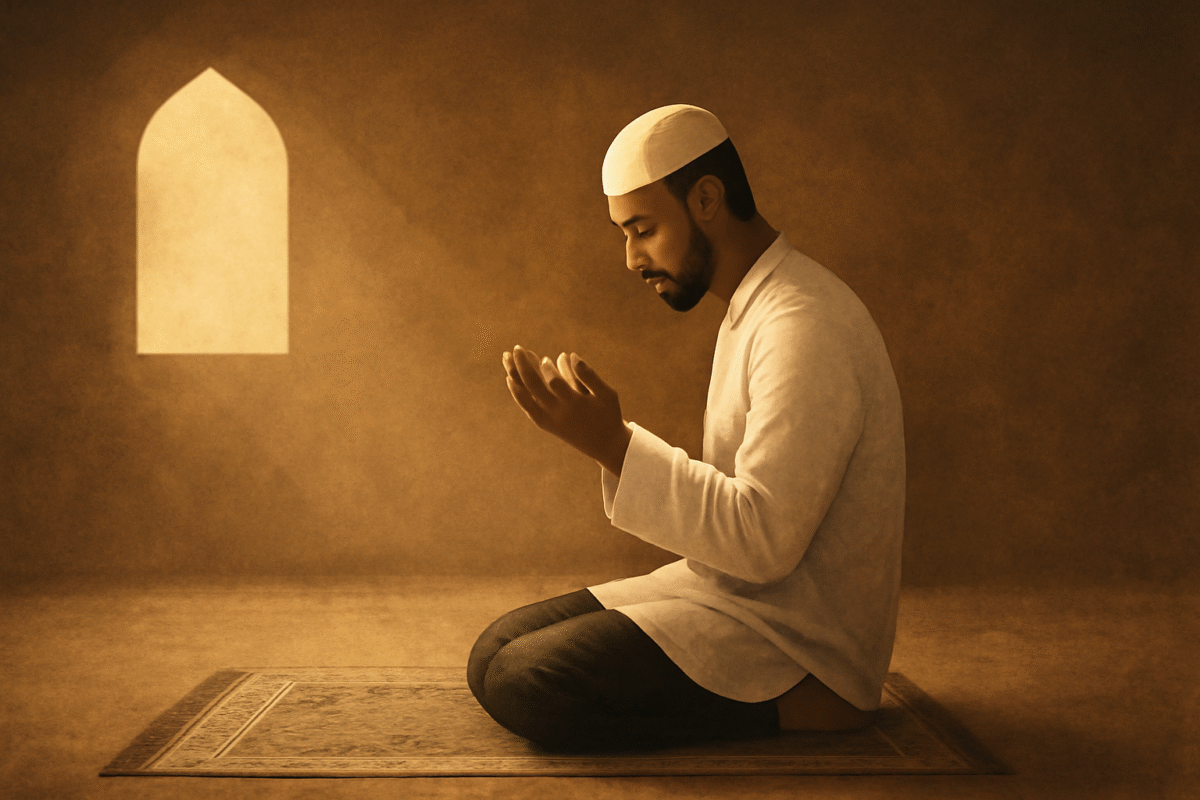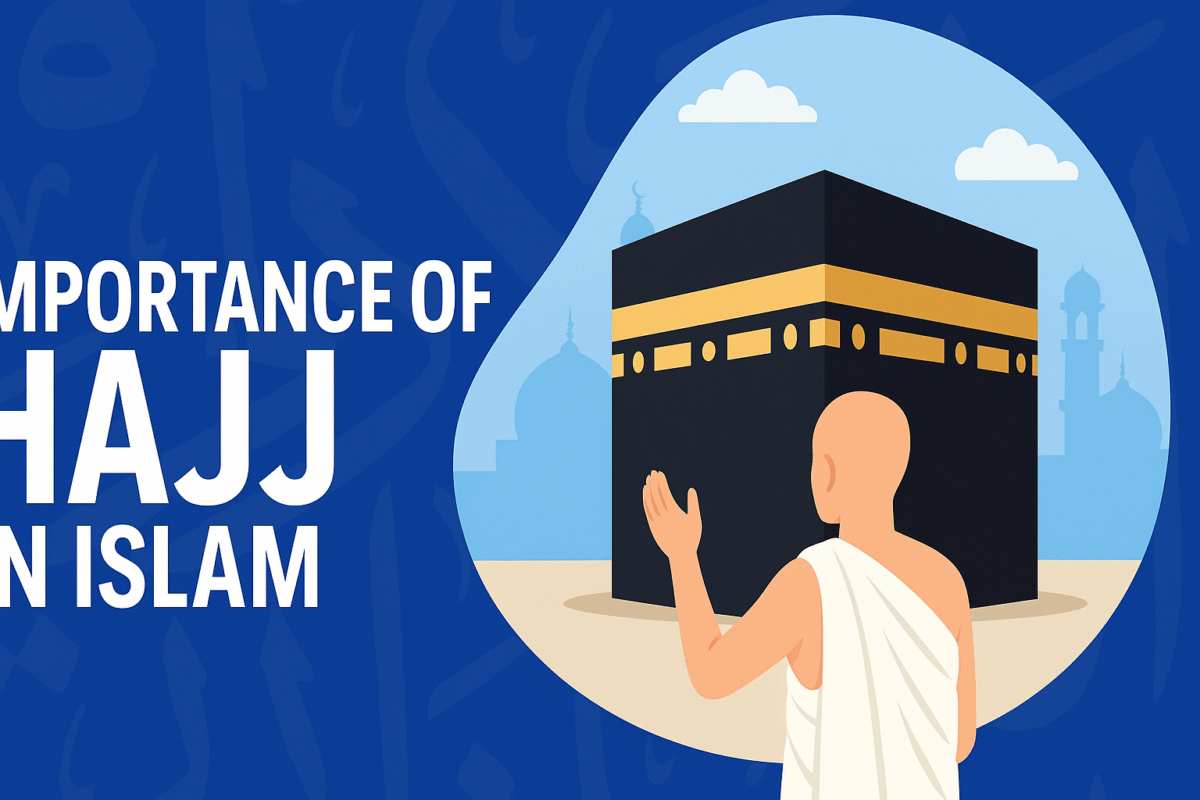Every journey in life seeks a destination. Yet, some paths carry a deeper meaning, stirring the soul rather than just covering distance. Among these, the most sacred is the spiritual journey of Hajj. While outwardly it appears as travel toward a specific holy location, the true meaning of Hajj in Islam lies in its ability to lead a person from self-centeredness to selflessness, from outward worship to inner submission, and reason to divine love.
Each step in Hajj reflects an internal mirror, revealing layers of the self. More than just a physical act, it demands inner preparation for Hajj—faith, sincerity, patience, and reliance on Allah. Those who embark with both material resources and spiritual readiness experience Hajj not just as a ritual, but as a journey of the heart. This deeper understanding is beautifully illustrated in the lives of Sufi saints, whose experiences serve as timeless reminders of what it truly means to perform Hajj. You can also read about Selflessness in Hajj.
Ibrahim bin Adham (RA): Riding the Mounts of the Heart
One of the most well-known Sufi stories of Hajj is that of Hazrat Ibrahim bin Adham (RA), a revered mystic and ascetic. As narrated in Tafsir Fath al-Aziz, referencing Tafsir Kabir, he once set out on Hajj on foot. A rider, surprised by his lack of transport, asked, “Such a long journey, and no mount?”
With calm assurance, Ibrahim bin Adham (RA) replied, “Alhamdulillah, I have many mounts.”
Perplexed, the man said, “But I see none.”
He answered:
“In hardship, I ride the mount of patience.
In blessings, I take the mount of gratitude.
When facing challenges, I rely on submission and acceptance.
In sorrow, I turn to ‘Inna lillahi wa inna ilayhi raji’un’.
When my ego and Satan resist, I mount ‘La hawla wa la quwwata illa billah’.
After sin, I ride the mount of repentance.
And when distracted, I rise upon glorifying Allah.”
The traveler, humbled, replied, “Indeed, you are the true rider. If my horse fails, I’m helpless. But your rides—your spiritual tools—never fail.”
This powerful encounter shows how the real preparation for Hajj lies in spiritual strength and unwavering faith, not just physical means.
Bayazid Bastami (RA): Trusting Allah Over Provisions
Another inspiring Hajj story from Islamic history features Hazrat Bayazid Bastami (RA). As he set out for pilgrimage, he came across a dervish in deep meditation. After exchanging greetings, Bayazid asked, “Brother, what is your state?”
The dervish inquired in return, “Bayazid, where are you headed?”
He replied, “To perform Hajj.”
The dervish then asked, “Did you prepare provisions?”
Bayazid answered, “Yes, I have food, water, and a ride.”
The dervish smiled and said, “So your trust lies in your belongings—not in Allah. A real seeker should have complete reliance on Allah during Hajj. That alone makes the journey pure.”
Bayazid (RA) was deeply moved. Overcome by a spiritual state, he stayed with the dervish for a few days. Later, when asked if he had performed Hajj, he replied, “Yes, but with my heart.”
This highlights how true Hajj is a journey of the soul, not merely a series of rituals.
Preparing the Heart for the Spiritual Journey of Hajj
These timeless stories of Hazrat Ibrahim bin Adham (RA) and Hazrat Bayazid Bastami (RA) remind us that Hajj is not only a physical obligation but also a spiritual transformation. Real ability—Istita’ah—is not just wealth or logistics. It includes faith, patience, gratitude, trust, and sincerity, all of which are essential for a meaningful Hajj. You can also explore about Hajj Is Obligatory in islam.
When the heart is directed toward Allah, even without a mount, a person can embark on the path of divine acceptance.
A Heartfelt Supplication
O Allah!
Grant us hearts full of sincerity, tongues that remember You, and steps that walk Your path.
Bless us with the spiritual means of patience, gratitude, contentment, repentance, and remembrance, so we may reach Your divine nearness.
If we are granted the blessing of physical Hajj, make it a spiritual Hajj as well.
If we are not yet destined to go, guide our hearts to journey toward You.
O Allah! Grant us a Hajj that is accepted in Your court and transforms us into Your beloved servants.
Ameen, Ya Rabb al-Alamin.
Conclusion
The stories of Hazrat Ibrahim bin Adham (RA) and Hazrat Bayazid Bastami (RA) offer timeless insights into the true essence of Hajj. This sacred pilgrimage is not simply about traveling to a holy site—it is about journeying inward. The importance of Hajj in Islam lies in its potential to transform hearts, renew intentions, and deepen one’s connection with Allah.
Whether one performs the pilgrimage physically or is still yearning for the opportunity, the journey begins with the heart. Inner preparation for Hajj—through patience, gratitude, submission, repentance, and remembrance—is just as vital as physical arrangements. A spiritually conscious Hajj brings not only acceptance but also closeness to the Divine.
May we all be granted the ability to walk this path with sincerity and may our journeys—visible or unseen—lead us to His nearness.
FAQs
Why is inner preparation for Hajj important?
While logistical planning is essential, inner preparation for Hajj—such as building patience, trust in Allah, and sincerity—is what turns the pilgrimage into a spiritually transformative experience. These inner qualities ensure the Hajj is accepted and meaningful in Allah’s sight.
Can someone experience the spiritual journey of Hajj without physically going?
Yes, as seen in the lives of many saints, including Bayazid Bastami (RA), one can undertake a spiritual journey of Hajj by purifying the heart, aligning with divine will, and living with submission and remembrance. When the heart is connected, distance becomes irrelevant.
What do Sufi stories teach us about the Hajj experience?
Sufi stories of Hajj highlight the importance of inner transformation, trust in Allah, and detachment from material dependence. They remind us that Hajj is not just a ritual, but a journey of the soul that requires sincerity, humility, and spiritual consciousness.



